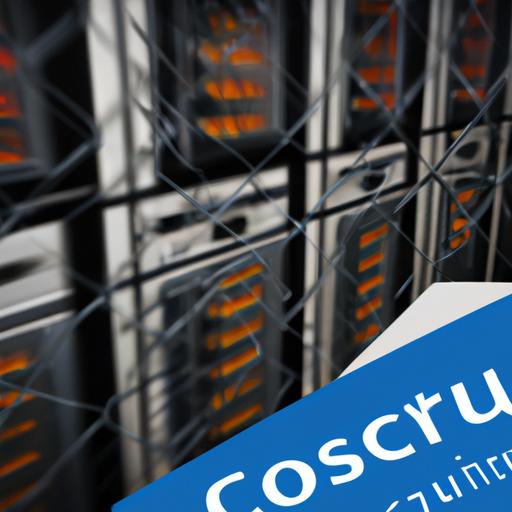As businesses continue to move towards digitization, the need for reliable and secure hosting solutions has become more critical than ever. When it comes to hosting, two popular options are colocation data centers and cloud computing. But which one is the right fit for your business?
In this article, we’ll explore the pros and cons of colocation data centers and cloud computing. We’ll also discuss the factors to consider when choosing between the two and the importance of selecting the right hosting solution for your business.
Importance of Choosing the Right Hosting Solution for Businesses
Choosing the right hosting solution is vital for businesses, whether small or large. It plays a crucial role in ensuring the reliability, security, and scalability of your digital infrastructure. When it comes to hosting solutions, colocation data centers and cloud computing are two popular options.
Colocation data centers are physical facilities that allow businesses to rent space for their servers and other computing hardware. Companies can take advantage of the data center’s infrastructure, such as power, cooling, and security while maintaining control over their hardware.
On the other hand, cloud computing is a virtual hosting solution where businesses can rent computing resources such as servers, storage, and applications, from a cloud service provider. Cloud computing offers numerous advantages, including scalability, flexibility, and cost-effectiveness.
In the following sections, we’ll dive deeper into the pros and cons of these hosting solutions and help you choose the right one for your business.
Colocation Data Center

A colocation data center with rows of servers and security cameras.
Explanation of Colocation Data Center
A colocation data center is a physical facility that businesses can rent space for their servers and other computing hardware. It provides companies with a secure and reliable environment to store their equipment while taking advantage of the data center’s infrastructure, such as power, cooling, and security.
Advantages of Colocation Data Center
One of the significant benefits of colocation data centers is the level of control and security they offer. Companies have complete control over their hardware and can customize their infrastructure to meet their specific needs. Additionally, colocation data centers offer high levels of security, such as 24/7 surveillance, fire suppression systems, and access control measures.
Another advantage of colocation data centers is the reliability they provide. They have redundant power supplies and cooling systems, ensuring that hardware is always up and running. This level of reliability is essential for businesses that require continuous uptime for their operations, such as e-commerce sites and financial institutions.
Disadvantages of Colocation Data Center
Despite the advantages, colocation data centers have some drawbacks, such as maintenance and scalability issues. Businesses are responsible for maintaining their hardware, which can be time-consuming and costly. Also, colocation data centers are not always suitable for businesses looking to scale their infrastructure quickly, as it requires significant investments in hardware and maintenance.
Another disadvantage of colocation data centers is the lack of flexibility. Since companies own their hardware, they cannot easily adjust to changing business needs. This lack of flexibility can be a disadvantage for businesses that require rapid changes in their infrastructure.
In the next section, we’ll explore the pros and cons of cloud computing and help you choose the right hosting solution for your business.
Cost Comparison

Multiple cloud servers that can be scaled up or down at any time.
When it comes to choosing a hosting solution, cost is a significant factor to consider. Let’s take a look at the cost breakdown for colocation data centers and cloud computing.
Breakdown of Costs for Colocation Data Center and Cloud Computing
Colocation data centers require businesses to invest in their hardware, which can be a significant upfront cost. Additionally, companies must pay for rack space, power, cooling, and other infrastructure costs. These costs can vary depending on the data center’s location, size, and services offered.
On the other hand, cloud computing operates on a pay-as-you-go model, allowing businesses to pay only for the computing resources used. The cost of cloud computing varies depending on the provider, service level agreement, and resources used.
Factors that Affect Costs, Such as Hardware and Software
Several factors can affect the cost of hosting solutions, such as hardware and software. With colocation data centers, businesses must purchase and maintain their hardware, which can result in a significant upfront cost. However, this also provides companies with control over their hardware and the ability to customize it to meet their specific needs.
Cloud computing, on the other hand, eliminates the need for businesses to purchase and maintain their hardware. However, the cost of cloud computing can increase as businesses use more resources, and they can face unexpected costs if they exceed their resource limits.
When considering the cost of hosting solutions, it’s essential to evaluate your business’s needs and budget before making a decision. In the next section, we’ll discuss the factors to consider when choosing between colocation data centers and cloud computing.
Choosing the Right Solution
When it comes to choosing between colocation data centers and cloud computing, businesses need to consider several factors to make the right decision. Here are some factors to keep in mind:
Business Needs
The first step is to consider your business needs. What are your current and future hosting requirements? What are your performance, security, and compliance requirements? Colocation data centers are suitable for businesses that require complete control over their hardware, have predictable workloads, and need high levels of security. Cloud computing, on the other hand, is ideal for businesses that require flexibility, scalability, and cost-effectiveness, and have fluctuating workloads.
Budget
Cost is another crucial factor to consider. Colocation data centers require businesses to purchase and maintain their hardware, which can be expensive. Cloud computing, on the other hand, operates on a pay-as-you-go model, which can be more cost-effective. However, businesses need to consider factors such as data transfer costs, storage costs, and in some cases, hidden costs such as network fees.
Security
Security is a top concern for businesses when it comes to hosting solutions. Colocation data centers offer high levels of physical security, such as biometric authentication, surveillance cameras, and 24/7 monitoring. However, businesses need to ensure proper security measures are in place for their hardware. In contrast, cloud computing providers offer robust security measures, such as firewalls, intrusion detection systems, and encryption. However, businesses need to ensure that the provider’s security measures align with their security requirements.
Uptime Guarantees
Uptime is critical for businesses that rely on their digital infrastructure to operate. Colocation data centers offer Service Level Agreements (SLAs) that guarantee uptime and provide compensation if the agreed-upon uptime is not met. Cloud computing providers also offer uptime guarantees, but businesses need to ensure they choose a provider with a robust infrastructure and adequate redundancy to ensure high availability.
Considering these factors, businesses can choose the right hosting solution that fits their needs and budget. It’s also essential to ask potential providers the right questions to ensure they meet your requirements, such as security measures, uptime guarantees, and infrastructure redundancy.
Conclusion
Selecting the right hosting solution for your business is crucial for ensuring the reliability, security, and scalability of your digital infrastructure. Both colocation data centers and cloud computing offer unique advantages and disadvantages.
Colocation data centers offer businesses control over their hardware and provide a secure and reliable hosting solution. However, they require significant upfront costs and ongoing maintenance and upgrades.
Cloud computing, on the other hand, offers scalability, flexibility, and cost-effectiveness. However, businesses may face dependency on the cloud provider and security concerns.
When deciding between colocation data centers and cloud computing, businesses must consider their unique needs, budget, and long-term goals. It’s essential to ask potential providers the right questions, such as their security measures and uptime guarantees, to make an informed decision.
In conclusion, the right hosting solution depends on your business’s specific requirements. By understanding the pros and cons of colocation data centers and cloud computing, you can make an informed decision and choose the hosting solution that best fits your business’s needs.